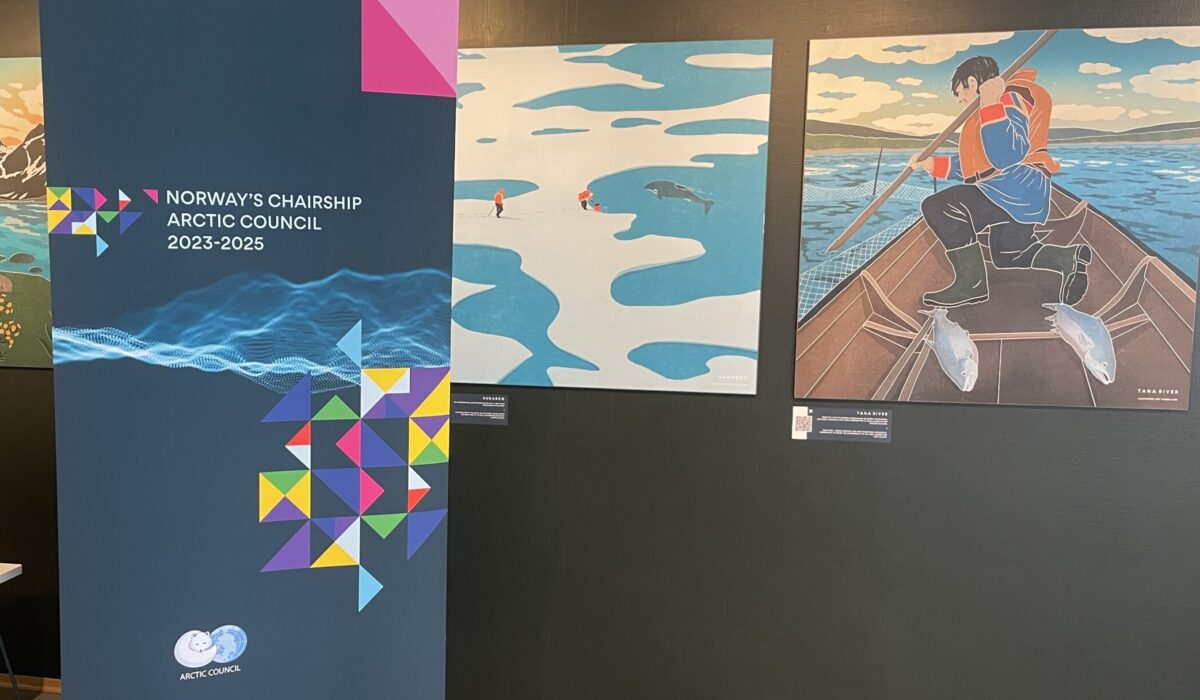
Arctic Economic Council: Key for Norway to focus of the well-being of people living in the Arctic
A strong focus on the people of the Arctic is important in Norway’s priorities for its chairship of the Arctic Council, according to the Arctic Economic Council.
“It is positive that Norway’s priorities for the coming two years has a strong focus on sustainable economic development and the people of the north. To have thriving communities we need to make sure that there are attractive jobs,” says executive director of the Arctic Economic Council Mads Qvist Frederiksen.
The Norwegian priorities were presented in Tromsø on March 28 by the Minister of Foreign Affairs Anniken Huitfeldt, the Minister of Climate and Environment Espen Barth Eide as well as the President of Sametinget Silje Karine Muotka. Here the four headlines were the oceans, climate and environment, sustainable economic development as well as people in the north.
“I am happy that it specifically states that Norway wants to strengthen the cooperation with the Arctic Economic Council. The Arctic region is facing a lot of challenges that can only be solved by public-private partnerships. Having the overall objective of promoting stability and constructive cooperation also benefits the private sector operating in the north,” says Mads Qvist Frederiksen.
Arctic Economic Council was established in 2014 and is the only pan-Arctic business membership organisation and the only entity to have signed an MoU with the Arctic Council. The organisation does policy advocacy, networking and outreach and today AEC has members from more than 11 different countries. The organisation is based in the Norwegian city Tromsø, where also Arctic Council, Arctic Mayors Forum, along with other international organisations are located.
“AEC Norway has established three priorities for their chairmanship starting in May 2023. Those are energy, just transition and thriving communities. It is clear that these priorities align well with the large parts of the priorities of the Norwegian government. We are looking forward to strengthening the cooperation with the Arctic Council as is also stated in the new Norwegian priorities,” says Mr. Frederiksen.
The coming two years will also focus on Arctic food chains and value chains with a particular emphasis on food systems. This correlates with the work of the AEC who over the past years have put the spotlight on Arctic food at events at the Arctic Circle Assembly in Reykjavik, Arctic Frontiers in Tromsø and at the Arctic Circle Japan Forum. AEC is currently also working on a mapping of the importance of the food sector to the Arctic.
“The updated report on the economy of the Arctic is important and must be followed by actions to further develop it. The AEC can contribute to this but also some of the other areas like the development of a green shipping corridor, the promotion of integrated ocean management and much more,” says Mads Qvist Frederiksen.
One of the focus areas is how nature and traditional land use can be safeguarded during the green transition where mining and energy projects are key for the economic development of the Arctic. Here the AEC has developed the Arctic Investment Protocol to inspire companies and investors of how to work in the Arctic region.
Background:
Arctic Economic Council was established by the Arctic Council. Today it is an independent business membership organisation. It will host its Annual General Meeting in Tromsø on May 10th – after which Norway will take over the two-year chairmanship.
Questions should be directed to Mads Qvist Frederiksen, mads@arcticeconomiccouncil.com , +4745911056